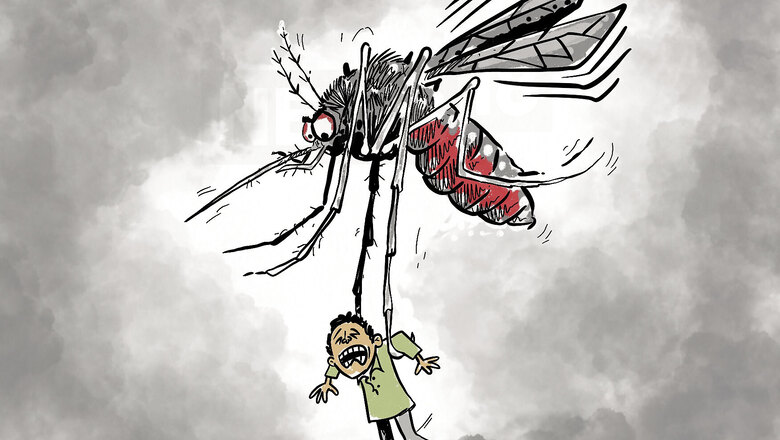
views
The number of mosquito-borne diseases usually goes up during the monsoon as the temperature provides for the suitable surviving conditions for mosquitoes. Mosquitoes often breed in stagnant water and feed on human blood during breeding. During these bites, many of the infected mosquitoes, especially female Anopheles and Aedes mosquitoes transmit viral infections like dengue, malaria, chikungunya and zika to humans.
India is reporting a number of dengue cases in many parts, including Andhra Pradesh, Chennai, Uttarakhand, Rajasthan and Uttar Pradesh. UP’s Lucknow seems to be badly affected by the mosquito-borne diseases, with eleven more patients tested positive for dengue on Monday, September 23. With the increased cases, Lucknow’s total count has reached 163 since July and 211 since January this year.
Meanwhile, the health official has found new breeding place for mosquitoes. According to reports in The Times of India, Lucknow Municipal Corporation’s (LMC) zone four office in Gomtinagar was among the 61 new locations where health department officials found larvae of Aedes aegypti. Aedes is a dengue vector that transmit dengue virus. The officials inspected 1,495 locations on Monday, which included Matiyari, Tikrohi, Ruchi Khand and Sahara Estates.
Of the 11 new dengue patients reported on Monday, six are men, while the other five are women. Surprisingly, out of the 11, six patients are in the 20 to 30 age bracket. Two of the diagnosed men are undergoing treatment at Balrampur Hospital and Civil Hospital.
Lucknow has reported 125 cases of dengue in two months. The number of patients being reported every day is growing up. Earlier last week, the cases came in from different localities including Gomti Nagar, Ruchi Khand, Hazratganj, Tikrohi, Bazarkhala, Salehnagar, Neelmatha, Indira Nagar, Sharda Nagar and Rajajipuram.
According to health officials, dengue fever has affected 173 persons in the state capital alone, with the maximum number of cases being reported in August and September.
“A number of cases go unreported because people mistake the symptoms for viral fever which is also very common in this season,” said a senior doctor of the Balrampur hospital.



















Comments
0 comment